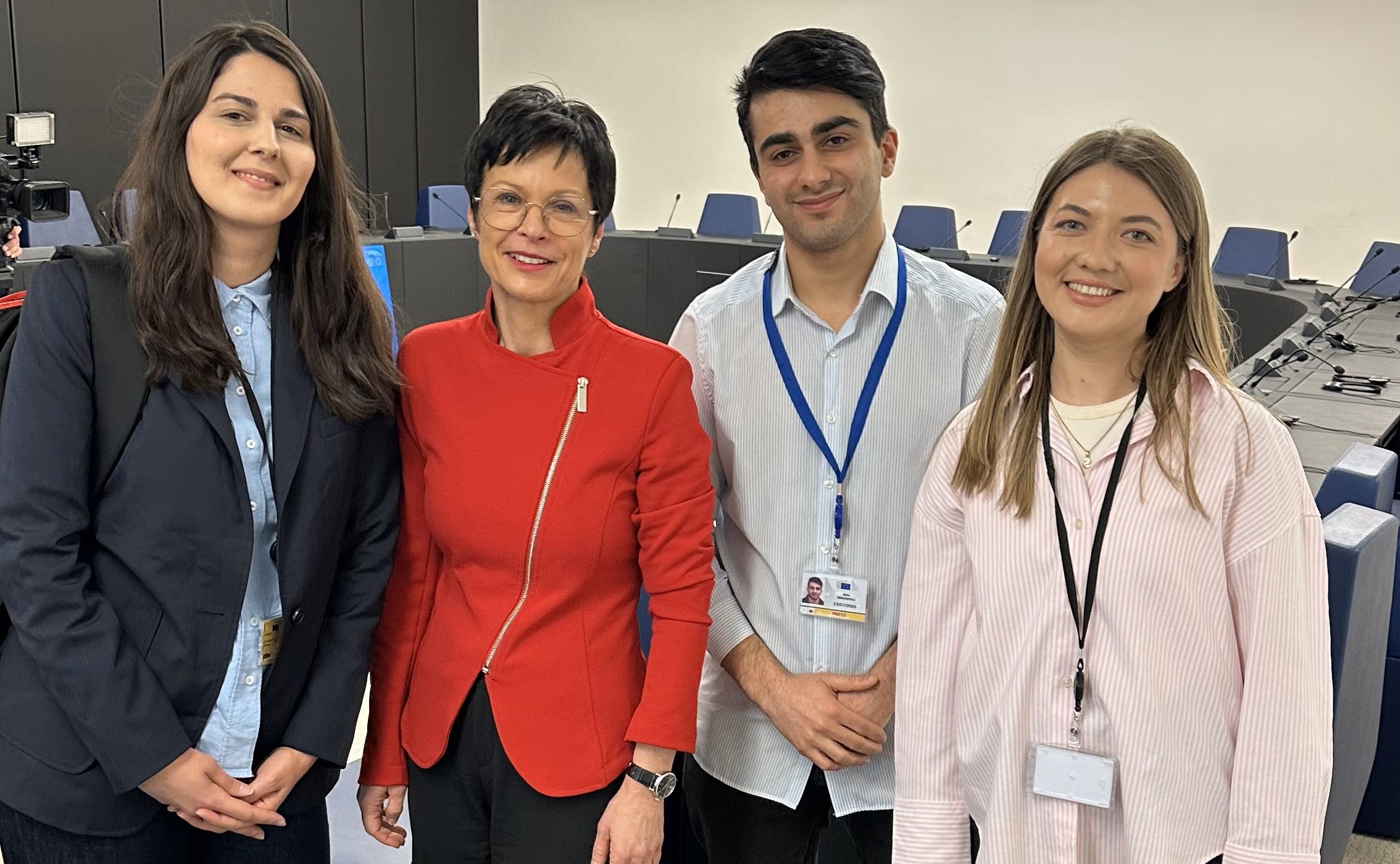Residents challenges: Radio Free Europe challenged, US AID down
“The cancellation of Radio Free Europe/Radio Liberty’s grant agreement would be a massive gift to America’s enemies.” – RFE/RL President and CEO Stephen Capus
The termination of Radio Free Europe/Radio Liberty’s (RFE/RL) federal grant agreement by the US Agency for Global Media, announced on 15th March 2025, represents a significant blow to independent journalism and a major victory for those who seek to suppress free speech.
The repercussions are particularly severe for journalists and Maison du MédiaLab residents like Vazha Tavberidze, the Brussels correspondent for RFE/RL’s Georgian Service. With the US pulling financial support, his work, along with that of many others, is at risk. The loss of RFE/RL’s presence in Eastern Europe and beyond threatens to leave a vacuum that could be easily exploited by authoritarian regimes and disinformation campaigns.
US AID cut: many Eastern Europe media suffer.
Christophe Leclercq, initiator of Maison du MédiaLab, has criticised the decision, highlighting the inconsistency in Western priorities: “Just as we start boosting the number of correspondents from Eastern Europe, their media are being undermined to the bone. It’s time for Europe to spread a few millions on the media, in addition to planning 800 billions for weapons.”
Monthly event- Vechornytsi: cooking borscht with Ukrainian, Moldovan, and Georgian correspondents and the Ambassador of Ukraine to the EU
On Tuesday, 11th of March, Maison du MédiaLab held a special cultural gathering, Vechornytsi, organised in collaboration with the Ukrainian Cultural Space. Invitees cooked borscht together with the UA Ambassador to the EU, a dish that symbolises unity, collaboration, and cultural heritage. Inspired by the Ukrainian expression “to cook borscht with someone” meaning to work together and build meaningful relationships. The guests took part alongside the UA Ambassador to the EU in a guided masterclass to prepare this UNESCO-recognised traditional dish. This culinary experience fostered connections and exchanges, much like the idiom “breaking bread together.”
The evening was accompanied by Ukrainian, Moldovan, and Georgian correspondents, as well as His Excellency Ambassador of Ukraine to the EU, Vsevolod Chentsov. Monthly events are organised by Europe MediaLab team and the Maison du MédiaLab resident, by invitation only. For more information please contact us on LinkedIn or by email.
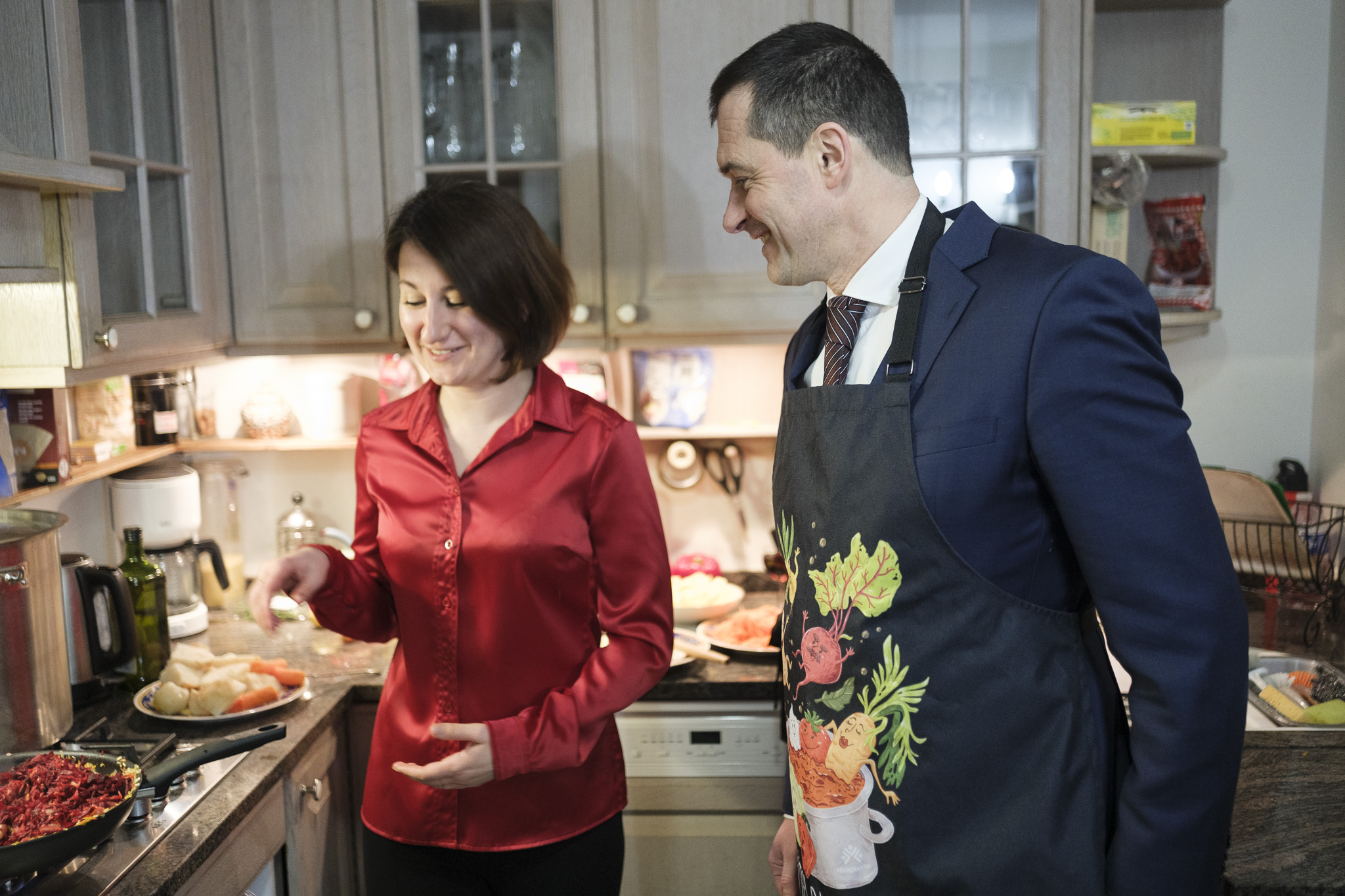
Op-Ed Media under US blackmail: what can the citizens & advertisers do to help the EU build Democracy Infrastructure?
Europe’s media sector is at risk. US platforms and political forces are undermining EU laws designed to protect the information ecosystem. Strong enforcement and strategic action are necessary to preserve independent journalism and democracy itself.
The influence of platform oligarchs like Elon Musk and Mark Zuckerberg goes beyond business: it is political. Musk’s X (formerly Twitter) has become a tool for influence, while Meta deprioritized fact-checking and aligns with US free speech absolutism. The pressure is growing, and the EU’s ability to enforce media and digital laws is at stake. Meanwhile, some European governments are adopting Trump-style tactics, further destabilising the media landscape.
Read Christophe Leclercq, founder of the media Euractiv and the think-do-tank Europe MédiaLab, was a member of the EU’s High-Level Expert Group on Disinformation; full op-ed: LinkedIn post.
How should Europe build its democracy infrastructure? Let’s discuss.
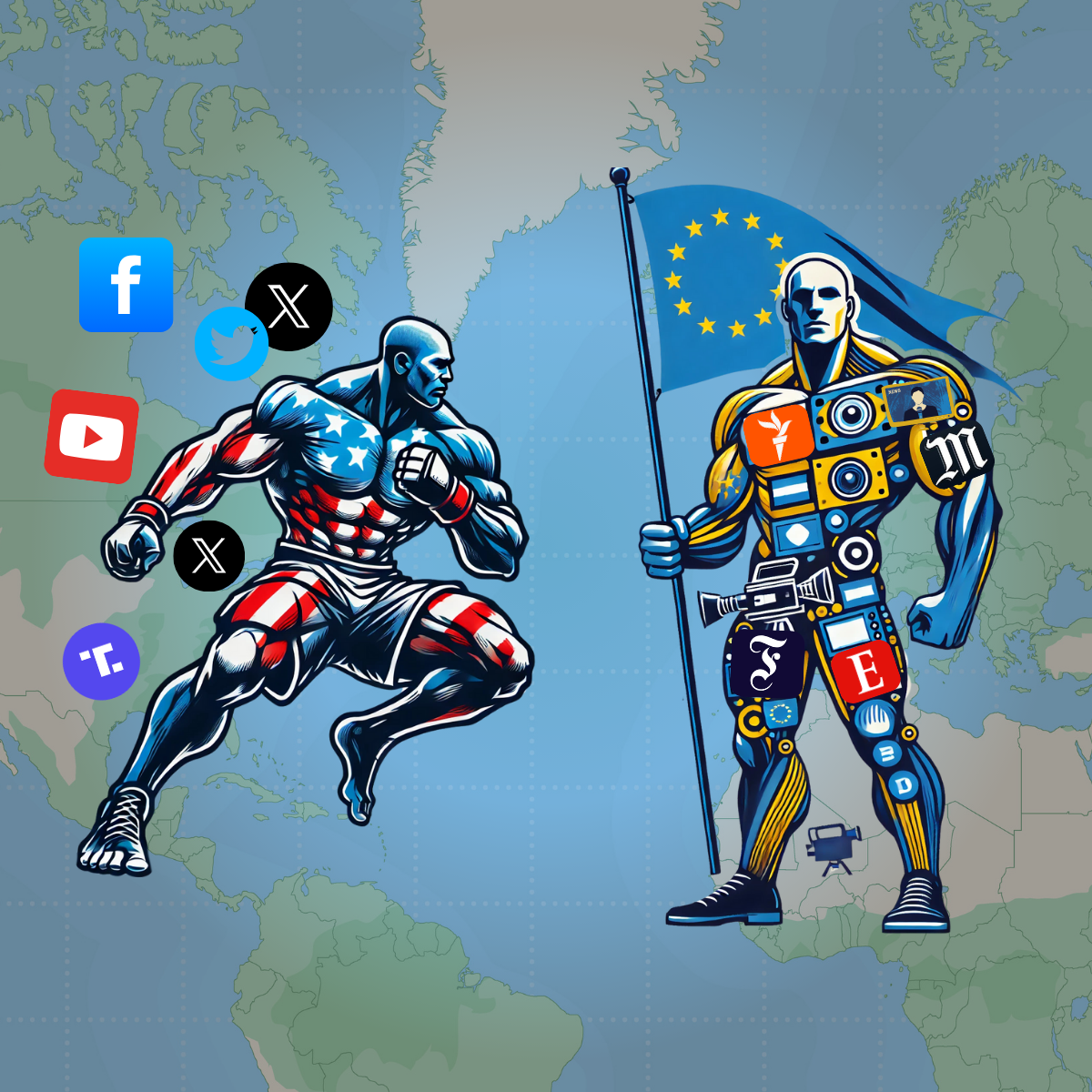
April 1st fiction news: “Given geopolitics, Euractiv goes sovereign, across-Europe and free”
In an April Fools’ feature, Christophe Leclercq imagined Euractiv transformation into a ‘sovereign media group’. Set against a backdrop of geopolitical tension and digital disruption, this fictional narrative saw European leaders uniting in support of independent, pan-European journalism. With references to MEGA summits, ‘sovereign hybrid reporting’, and playful jabs at Elon Musk and Donald Trump, the article explores what it might look like if media resilience were placed at the heart of EU strategy. Complete with faux quotes, dramatic scenarios, and a clear disclaimer, the article encouraged readers to reflect – with humour – on the future of journalism and Europe’s role in shaping it.
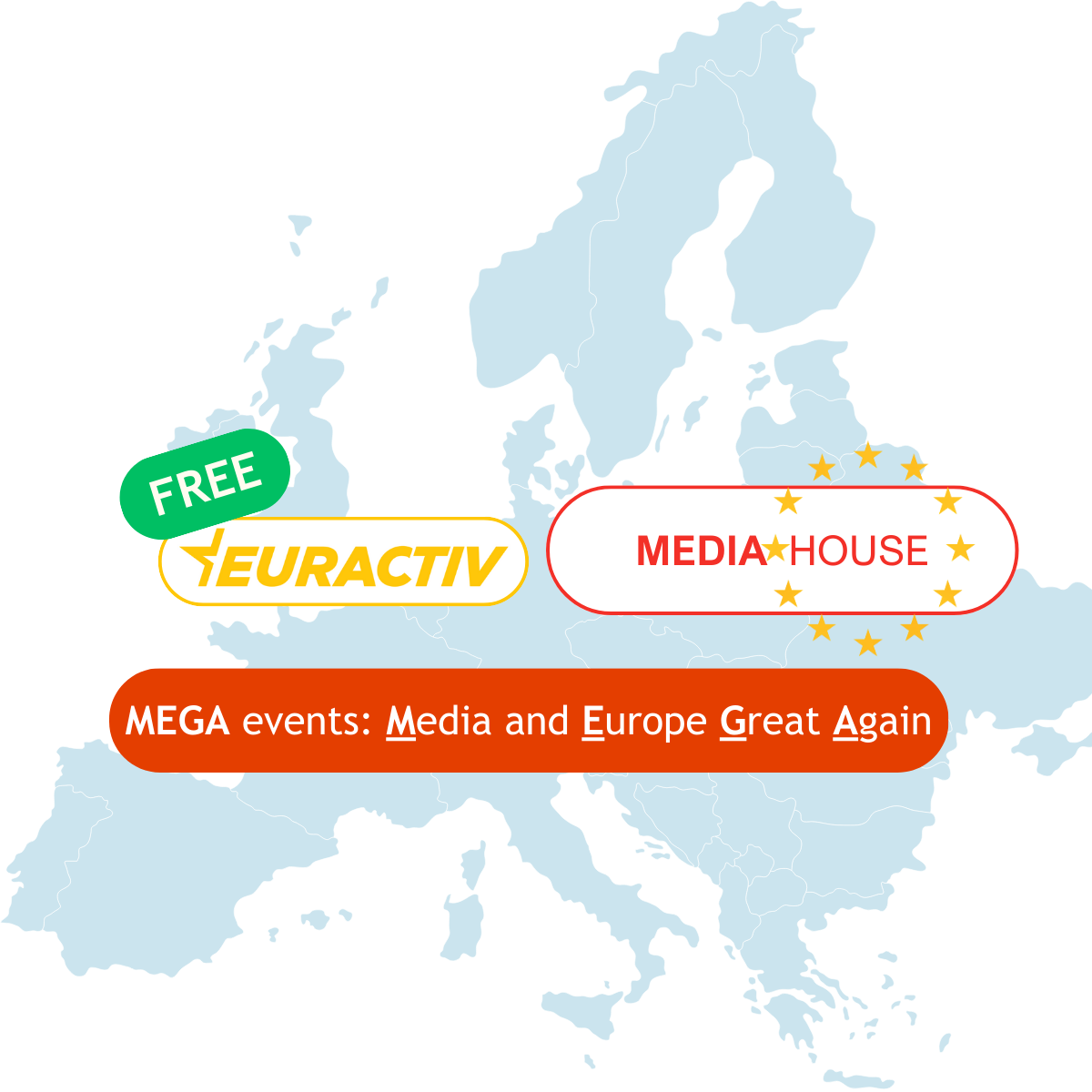
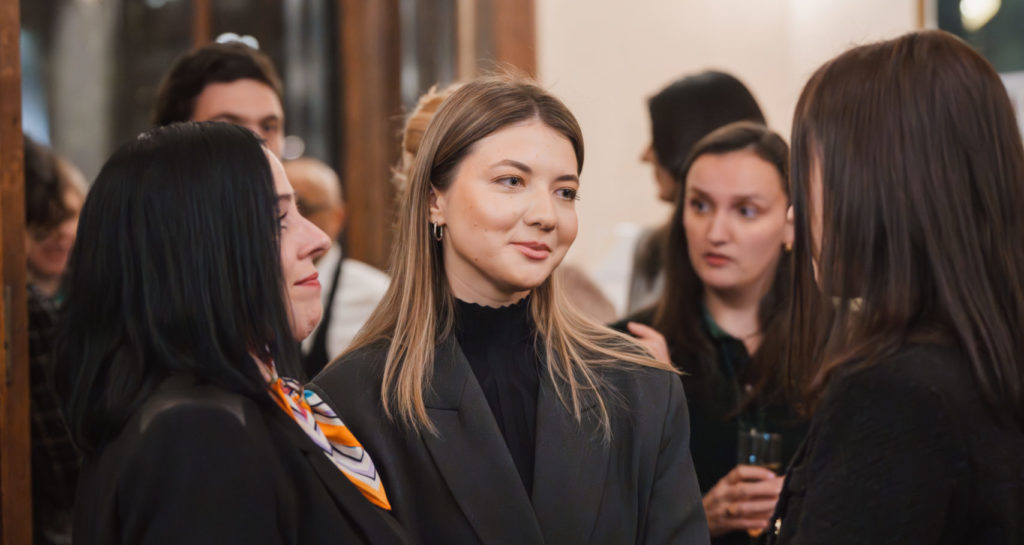
🇲🇩 Iulia Sarivan
Jurnal TV/ Deutsche Well
In March, Iulia Sarivan delivered a series of incisive reports for Jurnal TV, focusing on Moldova’s evolving relationship with the European Union and key regional developments. Her coverage included the EU Parliament’s approval of a €1.9 billion economic growth plan for Moldova, and the growing concern over Russian disinformation and influence in the region. She also reported on European support for Moldova’s energy sector and efforts to secure Moldova’s path toward EU accession. Through detailed political analysis and clear reporting, Iulia continues to provide a vital journalistic lens on Moldova’s European journey and the broader regional context. Additionally, for Deutsche Welle, Iulia covered and gave insight on for example the protest at the beginning of March where dozens gathered outside the US Embassy following what was perceived as the humiliation of Ukrainian President Volodymyr Zelensky by Donald Trump.
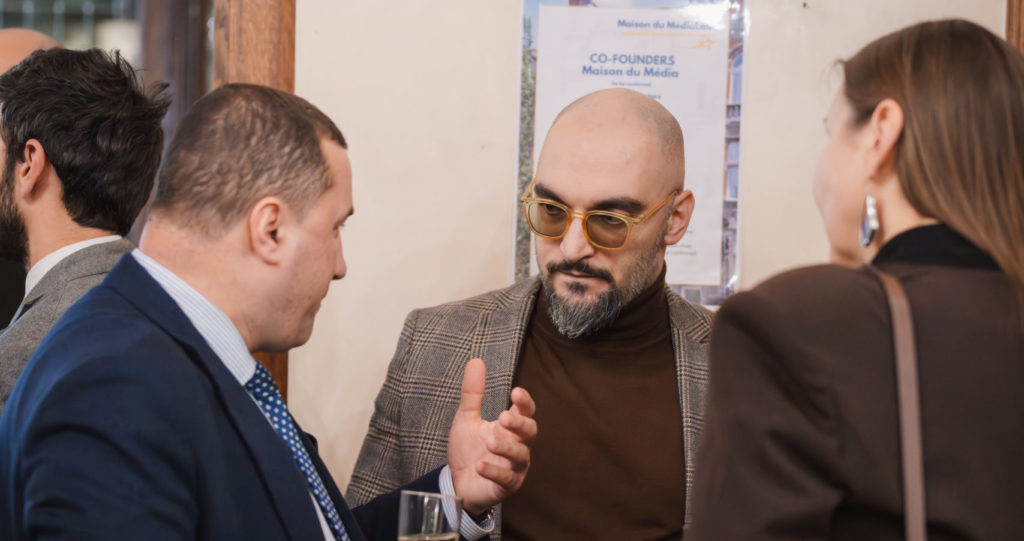
🇬🇪 Vazha Tavberidze
Radio Free Europe/ Georgia Today
In March 2025, just before the suspension of Radio Free Europe/Radio Liberty’s (RFE/RL) funding, Vazha Tavberidze—known for his sharp, high-level interviews—published two significant pieces that underscored his expertise in European security affairs. For RFE/RL, he spoke with defence expert Michael Clarke, who analysed the evolving dynamics of the war in Ukraine and anticipated a potential shift later in the year. Around the same time, writing for New Eastern Europe, he interviewed Admiral Giuseppe Cavo Dragone, Chairman of NATO’s Military Committee, who stressed that “a bad peace… would be worse than no peace.” These two interviews, published just before the abrupt pause in his reporting following the RFE/RL funding freeze, highlight Tavberidze’s continued commitment to bringing informed, critical voices to the forefront of Europe’s security discourse.
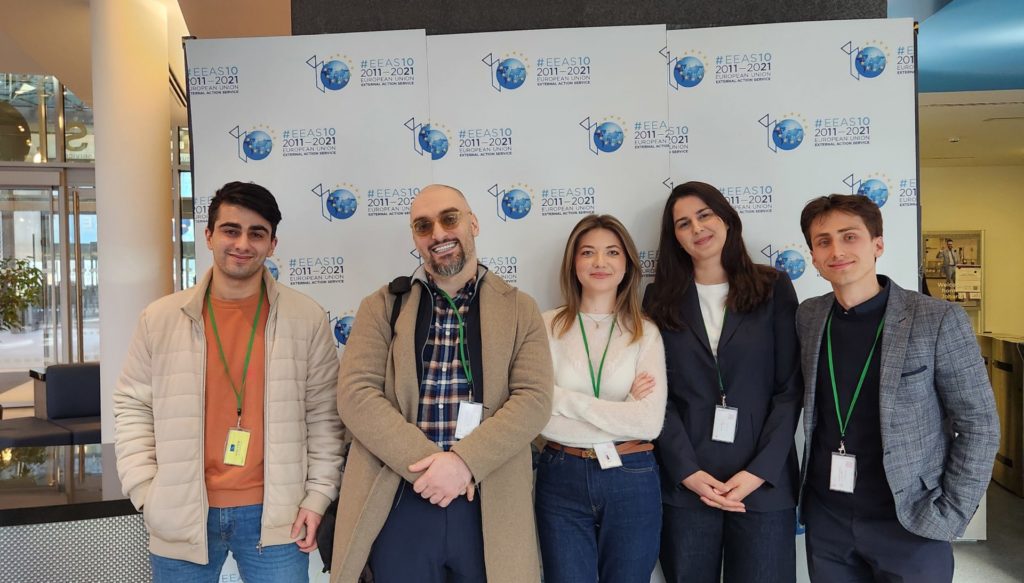
Visits to EEAS
In March, Maison du MédiaLab residents visited the European External Action Service (EEAS) for a series of in-depth discussions focused on the growing threat of disinformation across Eastern Europe. Participants included Mircea Nicolae from NANCA, Jan Latal, Jeremy Aron, and the Head of the EEAS office in Moldova. Together, they engaged in a thoughtful exchange on how disinformation is evolving in their respective regions, examining both the sources and the channels through which false narratives spread. The conversations delved into the political, social, and technological dimensions of the issue, highlighting how coordinated campaigns can undermine democratic processes and public trust. Beyond identifying the challenges, the group also explored practical strategies for countering disinformation—ranging from media literacy initiatives to cross-border cooperation and increased support for independent journalism. The meeting underscored the EEAS’s ongoing commitment to strengthening media resilience and fostering dialogue between policymakers and journalists on the ground.
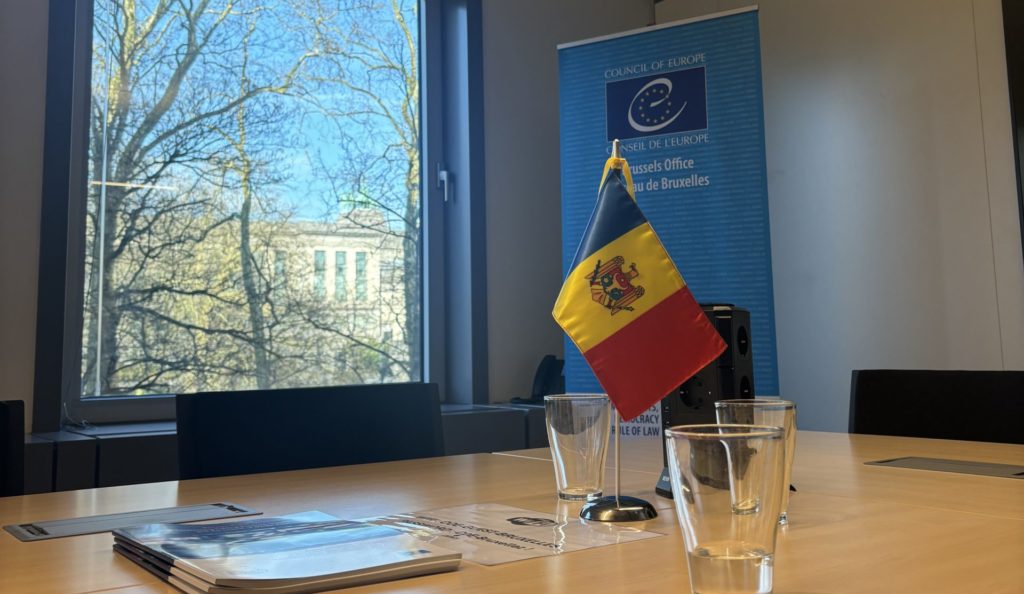
Visit to the Council of Europe
They later visited the Council of Europe for a comprehensive series of discussions centred on the complex geopolitical landscape in Eastern Europe. They were welcomed by Andrew Cutting, spokesperson and media officer, and Andriy Zayats, Head of Office, who shared insights into the Council’s current priorities and its role in safeguarding democracy, human rights, and the rule of law across the continent. The conversation focused on the evolving situations in Moldova, Transnistria, and Georgia—regions facing heightened political tension and external influence. Journalists and Council representatives examined the historical roots of these challenges and the current efforts being made to support democratic governance and regional stability. The discussions also addressed the broader consequences of Russian aggression and how frozen conflicts continue to affect both local populations and wider European security. Emphasis was placed on the importance of media freedom in these regions, particularly as journalists often face pressure, censorship, or disinformation campaigns. The visit reaffirmed the Council of Europe’s commitment to engaging with media professionals and civil society actors.

